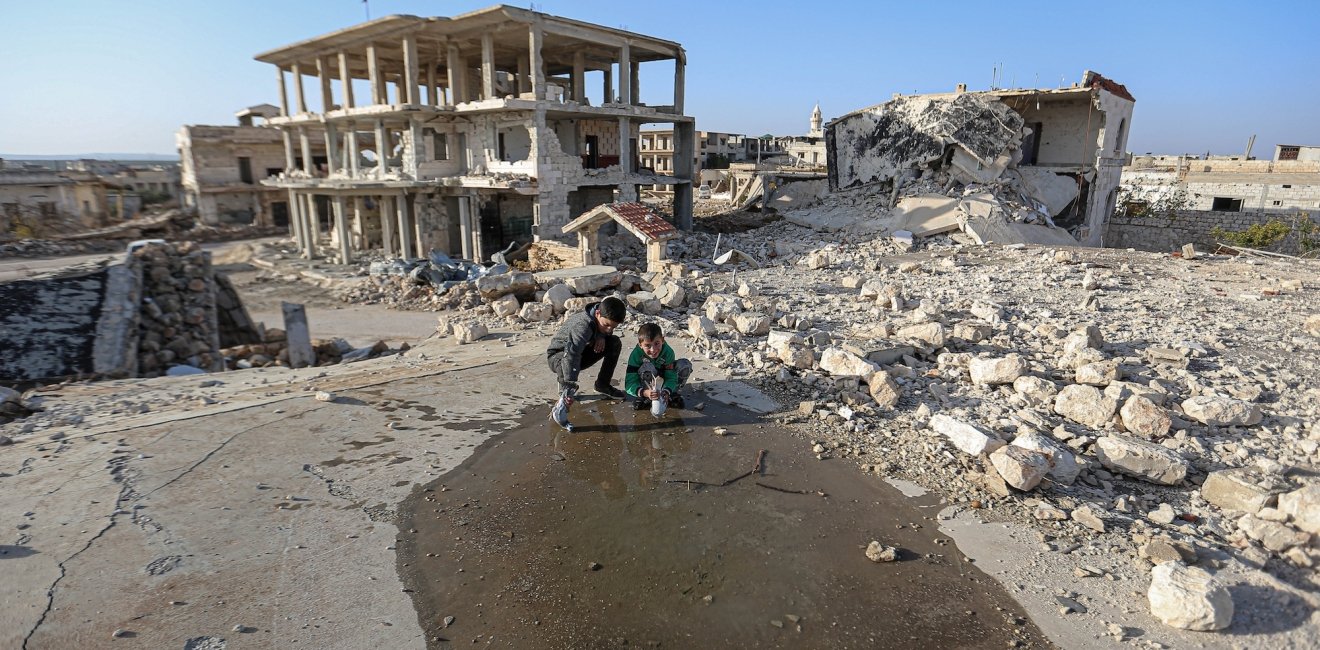
A blog of the Middle East Women's Initiative
Syrians need help accessing the tools that will assist them in reconstructing their lives, and the international community can support by ensuring these tools are within reach.
People in Northwest Syria are still trying to pick up the pieces of what remains of their lives over 100 days since the catastrophic February 6 earthquakes. The natural disaster hit at a time when Syrians had endured over a decade of conflict, constant attacks, and severe deterioration in living conditions. The earthquake added another layer of pain compounding the years of suffering, loss, and despair. Despite the horrific scenes of people buried under rubble, families frantically looking for missing loved ones, and complete destruction of homes, in a matter of days the world’s attention was diverted elsewhere, leaving thousands of Syrians to fend for themselves, yet again.
Today is World Refugee Day, a day to honor those forced to flee conflict. Although they are not refugees, most of the population in Northwest Syria was forced to flee internally multiple times in search of safety following conflict and the more recently the earthquake. Today honors their strength, perseverance, and courage. It is also a day to remind the world that they are still in need of support to rebuild their lives.
Desperate for aid
Shortly after the earthquake hit, the sentiment among family and friends in Northwest Syria was a sense of isolation, especially when they realized that no country was willing to help them dig up the bodies of their loved ones. Despite humanitarian organizations’ best efforts to garner the support of the international community to deliver search and rescue equipment, no one stepped up. While humanitarian aid did begin to flow into the region within a few days, the search and rescue aid never came.
Over the past four months, humanitarian agencies have been working tirelessly to meet the ever-increasing needs. About 4.1 million people in Northwest Syria were already reliant on humanitarian aid. Since February, temporary shelters were created, insecure buildings were evacuated, and distributions of food assistance were underway. Although physical shelter was a top priority, secondary consequences of the earthquakes required the same level of attention. With many women and children displaced from their homes, sexual and gender-based violence increased. In addition to loss of life and material belongings, families also lost their civil documentation like birth certificates and property deeds – identification that will create long-term barriers to recovery.
As we move into a new phase of the emergency, people are no longer in need of temporary solutions but rather need assistance to sustainably rebuild their lives. This assistance includes more permanent and affordable living structures, increased access to job opportunities, and better functioning schools and health facilities. Psychosocial support, often a severely underfunded sector, is essential in helping this traumatized population heal and maintain hope for a future. Syrians need help accessing the tools that will assist them in reconstructing their lives, and the international community can support by ensuring these tools are within reach.
The earthquake has deepened the scars on the faces of thousands of Syrians. It exposed the weaknesses in our ability to meet their needs and made blatantly clear that the status quo is not enough. In every corner of the globe, there are competing crises and fewer resources to meet these increasing needs. For a population that is 90% reliant on humanitarian assistance, now is the time to prove they have not been abandoned. The best thing we can do for Syrians is to ensure all aid empowers, strengthens, and equips them to stand on their own two feet long after humanitarian actors are gone.
Author


Middle East Program
The Wilson Center’s Middle East Program serves as a crucial resource for the policymaking community and beyond, providing analyses and research that helps inform US foreign policymaking, stimulates public debate, and expands knowledge about issues in the wider Middle East and North Africa (MENA) region. Read more


Middle East Women's Initiative
The Middle East Women's Initiative (MEWI) promotes the empowerment of women in the region through an open and inclusive dialogue with women leaders from the Middle East and continuous research. Read more

Explore More in Enheduanna
Browse Enheduanna
Women are the Catalysts for Change in Lebanon

How Education Can Empower Young Women in MENA


